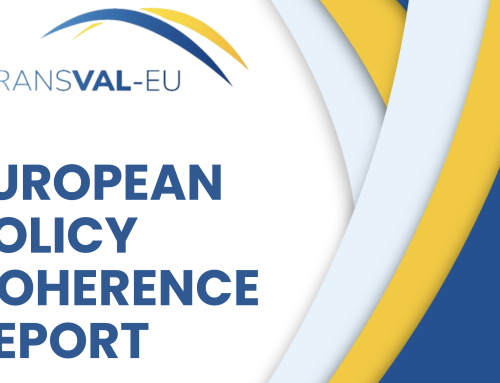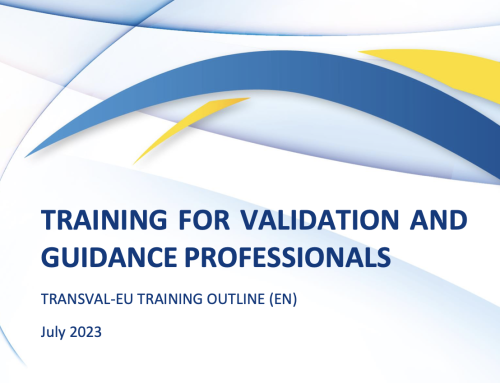What’s new in TRANSVAL-EU? The pilot phase – national training pathways in five countries
Based on the TRANSVAL-EU European Training hosted by the Italian project partners ARPAL, FORMA.Azione and Pluriversum, and carried out in May in beautiful Perugia (Italy), the project teams from Austria, Belgium, Italy, Lithuania and Poland are now designing and organising the National Training courses.
The National Training courses are short learning pathways addressed to 175 practitioners and aimed at training participants how to identify, document and assess transversal competences.
In each country, the training pathways will be conducted according to the new TRANSVAL-EU competence framework, but they will also take into account the specific aspects and priorities of the country contexts and the different institutional set-up of the validation services.
The main aim of the training is to support national practitioners in using the new competences in the guidance and validation services, improving models and tools for identifying and enhancing transversal skills in users for self-development and career purposes.
This is a key phase for the TRANSVAL-EU project: from the methodological research at international level through the European Training stages to the adaptation of the training and piloting of the new model on transversal skills at national level.
The main challenge will be the process of adaptation of the model within different national and regional legislative frameworks, for developing effective and suitable guidance and validation services.
The national training sessions will be the starting point for the field trials phase aimed at testing the model within several contexts and settings of provision, and with different end-users’ backgrounds.
During the National Training, validation and guidance practitioners from different sectors and institutions will be brought together to learn from each other by sharing and exploiting knowledge and international experiences through the direct involvement of education and employment stakeholder.
The National Training opens the field trial phase of the project, where each country will perform the piloting with a total of around 240 selected candidates, with a broad spectrum of backgrounds such as young adults in traineeship, low-skilled adults, migrants, unemployed and people in a phase of transition in their career.




